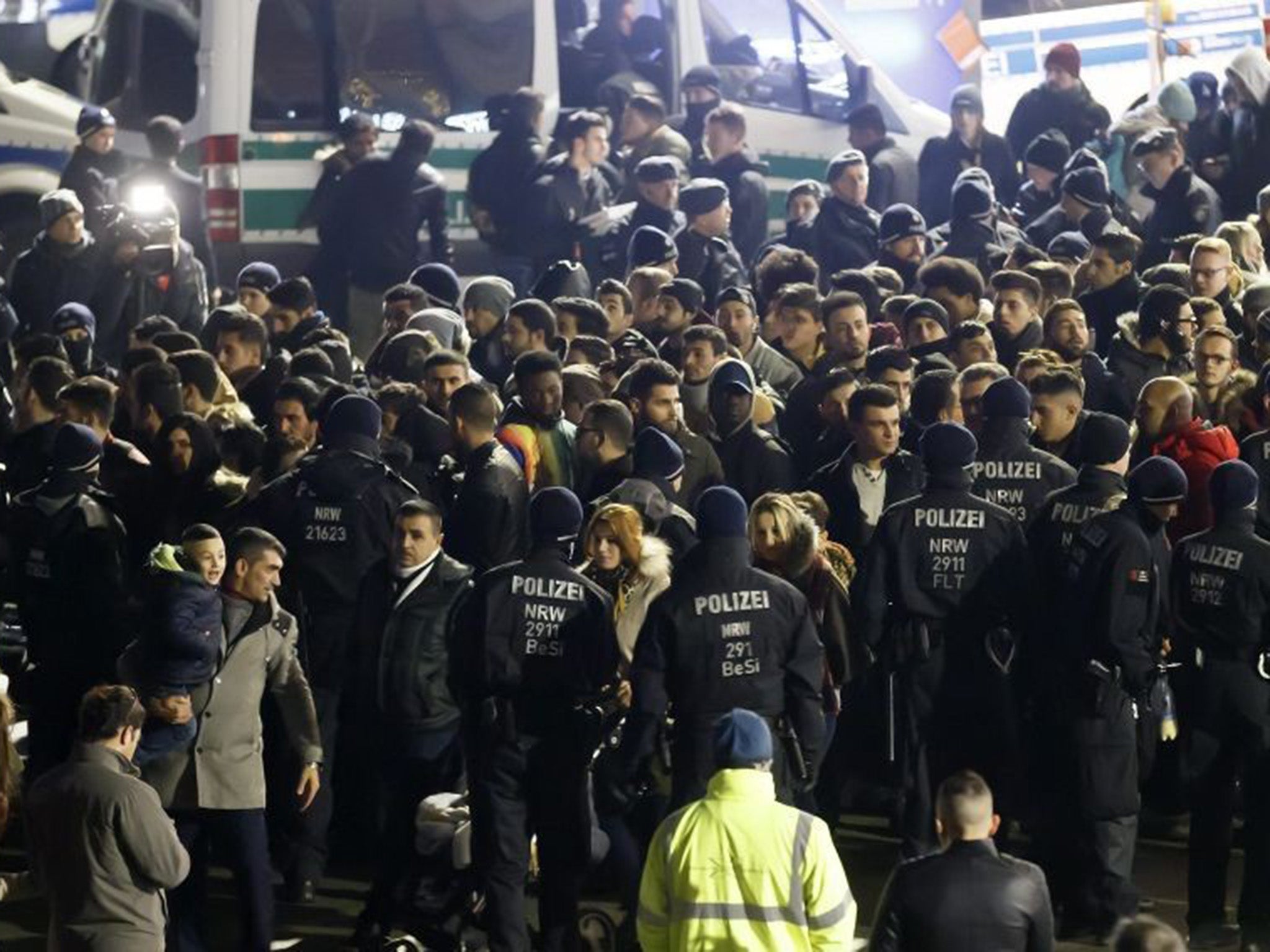UN accuses Germany of ‘institutional racism and racist stereotyping’ against people of African descent
Working group releases critical findings after outrage over Cologne Police tweet

Your support helps us to tell the story
From reproductive rights to climate change to Big Tech, The Independent is on the ground when the story is developing. Whether it's investigating the financials of Elon Musk's pro-Trump PAC or producing our latest documentary, 'The A Word', which shines a light on the American women fighting for reproductive rights, we know how important it is to parse out the facts from the messaging.
At such a critical moment in US history, we need reporters on the ground. Your donation allows us to keep sending journalists to speak to both sides of the story.
The Independent is trusted by Americans across the entire political spectrum. And unlike many other quality news outlets, we choose not to lock Americans out of our reporting and analysis with paywalls. We believe quality journalism should be available to everyone, paid for by those who can afford it.
Your support makes all the difference.A panel of UN experts has accused Germany of discriminating against people of African descent and allowing widespread racial profiling by the government and security agencies.
Researchers warned that the situation remains largely invisible to wider society, partly because the country’s colonial past and racism against black people has been “overshadowed” by a focus on Nazi history and the anti-Semitic far-right.
“The repeated denial that racial profiling does not exist in Germany by police authorities and the lack of an independent complaint mechanism at federal and state level fosters impunity,” said group leader Ricardo Sunga.
“The Working Group believes that institutional racism and racist stereotyping by the criminal justice system has led to a failure to effectively investigate and prosecute perpetrators of racist violence, racial profiling and hate crimes against people of African descent.”
“There is a serious lack of ethnicity-based disaggregated data, and an incomplete understanding of history, which obscure the magnitude of structural and institutional racism people of African descent face.”
The report came after police in Cologne were accused of racial profiling on New Year’s Eve, when a tweet from the force’s official account said North African men were being security screened, using the derogatory term “Nafri”.
UN researchers said they were “deeply concerned” about the situation, warning that laws against racial discrimination were not being enforced and black people’s lives were being marred by racism and negative stereotyping, as well as hate crime.
Stop and search and controls by police are targeting at minority groups, a report said, while cases of state discrimination and violence against have not been properly investigated.
People of African descent are at the “lowest rungs of Germany society”, the working group found, having their opportunities limited from school onwards and ending up with “the jobs which nobody else wants” such as cleaning, on low wages.
Meanwhile, researchers warned that roads and metro stations continue to be named after colonialists, whose actions are not adequately covered in German education.
Because Germany does not gather official statistics on the basis of ethnicity, equality data cannot be used to identify and combat issues, while people of African descent are not recognised as “a significant minority” deserving specific action, according to the report.
Around 800,000 people of African descent live in Germany – 1 per cent of the population – according to government estimates, although others believe the number is far higher.
The UN report urged the German government to increase awareness of the issues, improve its data gathering, combat racial profiling and recruit a more diverse workforce to state and security institutions.
The delegation from the UN Working Group of Experts on People of African Descent visited German cities including Berlin, Frankfurt, Düsseldorf, Cologne and Hamburg on an eight-day trip at the invitation of the German government.
The findings and recommendations will be formally presented to the UN Human Rights Council in September.
Join our commenting forum
Join thought-provoking conversations, follow other Independent readers and see their replies
Comments